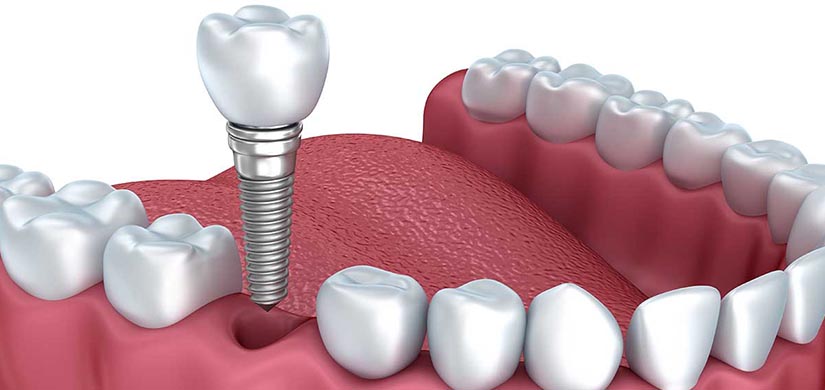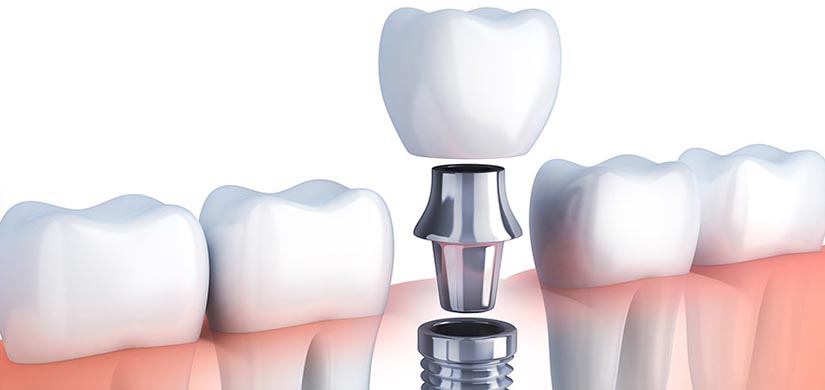Dental implant is a surgical component that interfaces with the bone of the jaw or skull to support a dental prosthesis such as a crown, bridge, denture, facial prosthesis or to act as an orthodontic anchor. Dental implants are metal posts or frames that are surgically positioned into the jawbone beneath your gums. Once in place, they allow your dentist to mount replacement teeth onto them.
Dental implants have emerged as a groundbreaking solution for replacing missing teeth, revolutionizing the field of dentistry and restoring smiles. With their remarkable success rate and long-lasting results, dental implants have become the go-to option for millions of individuals seeking a permanent and natural-looking tooth replacement solution. In this article, we will delve into the world of dental implants, exploring their benefits, procedure, and the positive impact they have on oral health.
Dental implants are artificial tooth roots made of biocompatible materials, typically titanium, that are surgically placed into the jawbone to support dental prosthetics, such as crowns, bridges, or dentures. Unlike traditional dentures or bridges, which sit on the gum surface or rely on adjacent teeth for support, dental implants provide a strong foundation for replacement teeth, mimicking the natural structure and function of the original teeth.
One of the most significant advantages of dental implants is their ability to restore chewing function and prevent bone loss. When a tooth is lost, the surrounding jawbone starts to deteriorate due to lack of stimulation. Dental implants stimulate the jawbone, promoting bone growth and preventing its resorption. This feature not only preserves facial structure and prevents a sunken appearance but also ensures the longevity of neighboring teeth, as they are not subjected to excessive forces caused by tooth loss.
Furthermore, dental implants offer unmatched durability and stability. Once the implant integrates with the jawbone through a process called osseointegration, it becomes a permanent part of the oral structure. This strong bond enables dental implants to withstand normal biting and chewing forces, providing patients with the confidence to eat their favorite foods without restrictions. Additionally, implants eliminate the inconvenience and discomfort associated with traditional removable dentures, as they are securely anchored in the mouth and do not require adhesives or clasps.
The dental implant procedure typically involves several stages. First, a comprehensive examination and imaging tests are conducted to assess the patient’s oral health and determine the suitability of dental implants. If the patient is a suitable candidate, the implant placement surgery is performed, during which the dentist or oral surgeon creates a small incision in the gum tissue and carefully places the implant into the jawbone. After a healing period of a few months, during which the implant fuses with the bone, an abutment is attached to the implant, which acts as a connector between the implant and the prosthetic tooth. Finally, a custom-made crown, bridge, or denture is fabricated and attached to the abutment, completing the restoration.
While dental implants offer numerous advantages, it is essential to note that not everyone is a suitable candidate for the procedure. Sufficient bone density and healthy gums are crucial prerequisites for successful implant placement. However, advancements in dental technology, such as bone grafting and sinus lift procedures, have expanded the eligibility criteria, allowing more individuals to benefit from dental implants.


